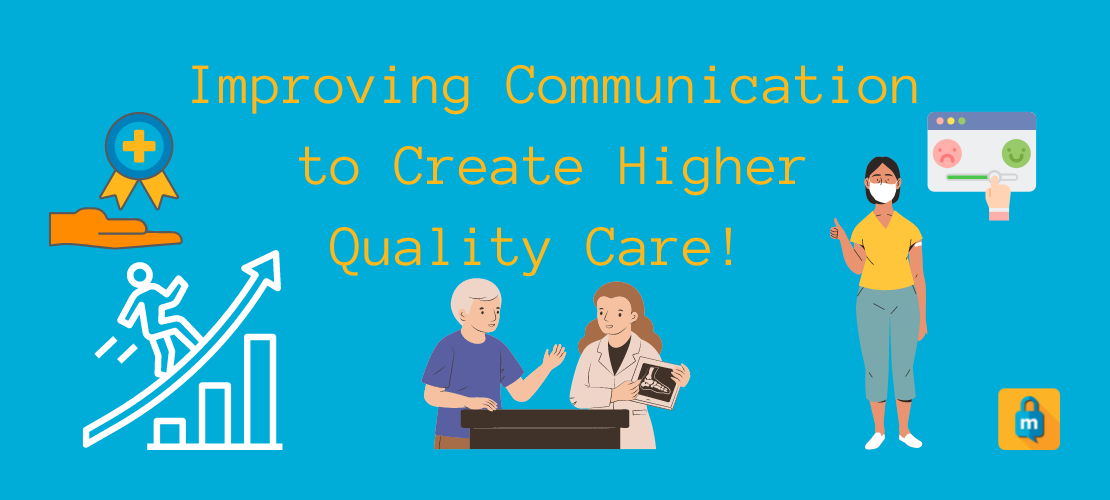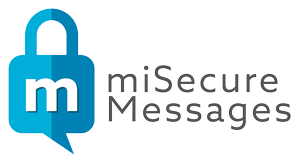
Improving Communication to Create Higher Quality Care!
Effective communication is a learning process. Successful communication is necessary yet rare in healthcare, especially when messages transfer from one department to another. Expecting every healthcare professional to lead is common within healthcare, regardless of the significance of their roles. That's why improving communication is crucial in developing leaders. One can enhance communication with the following:
being clear and concise
preparing what to say ahead of time
being aware of nonverbal communication
watching tone
active listening
building emotional intelligence
Clear and Concise
Less is more; being transparent doesn't always mean overexplaining. In healthcare, the message can get distorted when being passed by word. That's why a secure messaging platform helps get the correct information quickly. Explicitly outlining the news will eliminate irrelevant details that confuse or distract the receiver. Repetition is necessary, yet too much can make the receiver tune out entirely, make sure to repeat sparingly—a valuable skill when consulting with a patient.
Preparation
Take a moment to absorb the conversation and consider how to respond to the question or criticism. Anticipating the unexpected is something healthcare professionals have to expect all the time; taking the time to slow down and plan how to respond can make a significant difference in where the conversation will go. Preparing will help in easing the conversation and address disagreements calmly and clearly. Preparation within digital communication and streamlining communication will facilitate the process and develop strategies to transfer information effectively across departments.
Nonverbal Communication
As mentioned in the previous blog on nonverbal communication, messages can be contradictory. Such as an individual coming back into the room with tears running down their face, yet their verbal message is "I'm fine." The statement is contradictory, yet everyone is inclined to believe in nonverbal cues. Being mindful of nonverbal cues can help one build stronger relations, reduce confusion, and understand how to handle the situation appropriately.
Watching Tone
Paralanguage is the characteristics of voice, pitch, rhythm, intensity, volume, and rate. Tone reveals a speaker's emotional state, and paralanguage affects how one carries themselves and how the appearance is perceived. When in conflict, the word and tone are highly impactful and will be the factor that propels the direction of the conflict. A well-chosen comment and positive manner will promote trust, and the opposite will lead to misunderstandings. Intent and control are crucial yet challenging; practicing the two will improve communication. A BYOD messaging app is advantageous in taking the time to respond rather than rushing one's reaction leading to potential confusion and conflicts.
Active Listening
Listening is more challenging for some; giving another a chance to speak is hearing the whole message rather than just words. The other speaker will feel their opinions are valuable and is encouraged to share. Asking open-ended questions will also elicit more information, which is especially useful when speaking to a patient who uses indirect communication. Giving undivided attention to a patient will also aid in building trust. Listening can apply to team members and will improve team relationships.
Having emotional and social intelligence is quintessential in healthcare, "A leadership education framework addressing relationship management, burnout, and team trust" by Bobbie Ann Adair White et al. offers insight into the positive outcomes of emotional and social intelligence. The two qualities can reduce burnout, build team trust and improve relationship management. White brought up a concerning number on training within healthcare, "Additionally, up to 98% of internal medicine residents surveyed stated that they needed more team leadership training,4 and chief medical residents indicated that they did not receive any formal leadership training before or during the year they served." (White et al., p.2). Within healthcare, one needs to lead themselves to complete tasks. Having minimal leadership training is detrimental to current and future leaders. Practicing self-awareness and humility is a step toward effective communication and leadership.
Emotional Intelligence
Emotional intelligence (EI) can help across all careers. However, since healthcare professionals work alongside patients, the skill is critical and necessary to deliver quality care. Becoming self-aware is a step toward building emotional intelligence. White defines emotional intelligence as, "The domains of emotional intelligence include self-awareness, self-management, social awareness, and relationship management." (White et al., p. 299). Being self-aware and aware of others will propel leaders into successful team relationships. Resonant leaders use mindfulness, hope, and compassion to lead team members in achieving goals.
Always prioritize communication; when an organization chooses silence, that is deadly in healthcare. Organizational silence increases medical errors, reduces team psychological safety, lowering social relations. Considering and practicing the listed tips above will improve organizational culture and encourage communication. There are many barriers to communication within healthcare; preparing and equipping the valuable assets will engender a successful leader and communicator. By practicing these skills, healthcare professionals will see a drastic improvement on an organizational level, social relations, performance, patient care, and reduced stress.

